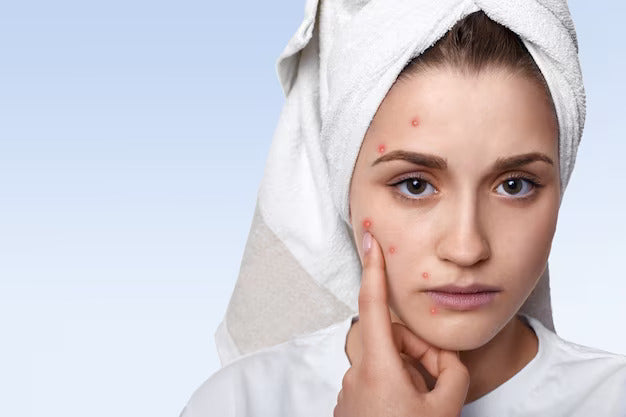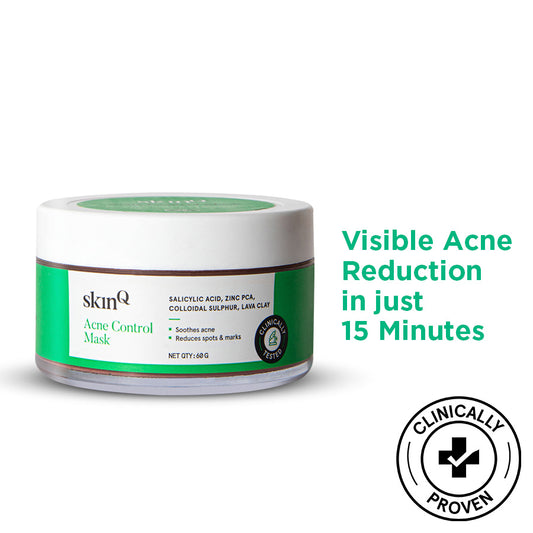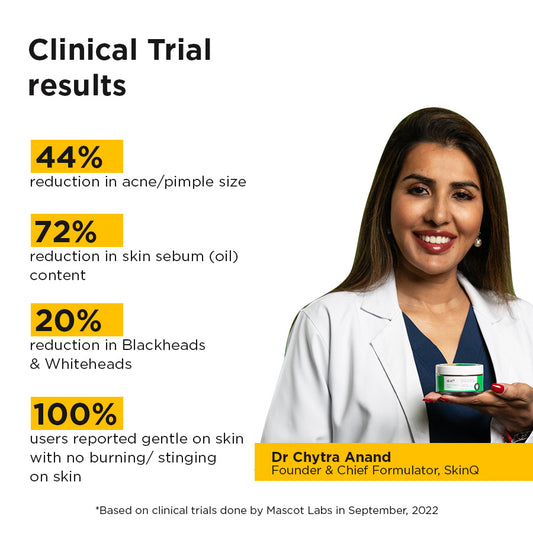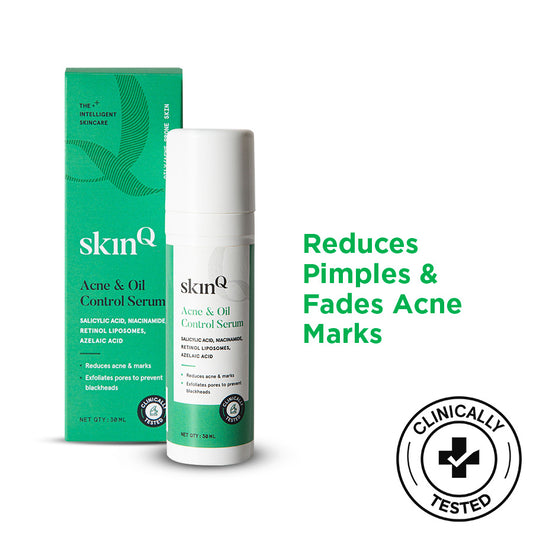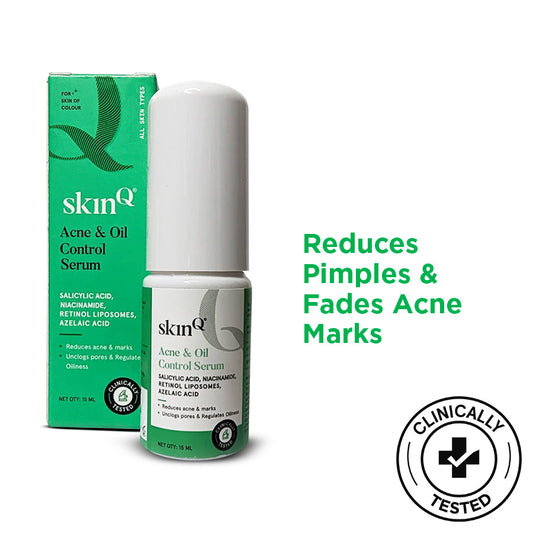Imagine you wake up on a big day - a job interview or a first date. With adrenaline rushing, you hurry to the mirror, brimming with confidence. But as you look, a tiny bump on your forehead dampens your spirits.
Certainly, pimples on the face can cause frustration and insecurity in today's society, where beauty standards emphasize perfection. Whether it’s a single pimple on the chin or a heavy breakout of pimples on the forehead, understanding the root causes is key to managing and preventing these unwelcome blemishes. Join us as we explore the reasons behind facial pimples and discover the secrets to achieving clearer, healthier skin.
Let's begin the journey!
What Are Pimples?
Pimples, or Acne Vulgaris, are common bumpy spots on the skin caused by blocked hair follicles due to oil and dead skin cells. Some may contain pus due to bacterial infection.
According to Clinicbe, around 9.4% of the world's population, or roughly 650 million people, are affected by acne. In addition, pimples on the chin, cheeks, and forehead are among the most common areas where they appear.
What Causes Pimples On Chin, Cheeks, And Other Areas?

Though there are a variety of reasons why people suffer from pimples, some of the major reasons are discussed below:
Improper Diet: Refined sugars, carbohydrates, and dairy products can spike blood sugar and insulin levels, affecting sebum (an oil secreted by the sebaceous gland) production and contributing to pimples. A diet high in glycemic-rich foods may also lead to acne.
Hormonal Changes: Fluctuations in hormones during puberty, pregnancy, menstruation, or menopause can influence sebum production, leading to pimples on the cheeks, chin, forehead, or nose.
Excessive Oily Skin: Some individuals have excessive oily skin, leading to clogged pores that provide an ideal environment for pimple-causing bacteria.
Cosmetic Products: Greasy or harsh skincare products can clog pores and cause pimples, emphasizing the importance of choosing products suitable for your skin type.
Genetics: A family history of acne increases the likelihood of developing pimples at any stage of life, indicating a genetic predisposition to the condition.
How To Deal With Pimples On Cheeks, Chin, And Other Areas Of Face?

For treating or preventing pimples, you can follow the below-mentioned practices:
Apply Acne Serums: You can choose any of the best acne serums containing ingredients like salicylic acid and apply it to the affected area. It will work by penetrating into the clogged pores and scooping out the dirt, oil, and other pollutants. In addition, such serums have anti-inflammatory properties that can help you with irritated skin during pimple breakouts.
Don’t Pop: It’s better to avoid popping, squeezing, or touching your pimples because it can spread infection to non-affected areas of your face.
Clean Regularly: It’s equally important to wash your face regularly with a suitable cleanser to remove dirt, bacteria, and excessive oil on the skin. Don’t scrub your face harshly as it can increase the infection.
Stay Hydrated: Try to drink plenty of water as it not only retains the moisture of your skin but also prevents excessive oil production.
Take Vitamin-Rich Diet: Researchers have found that certain vitamins, including Vitamin A, Vitamin D, and Vitamin E may help in preventing pimples since they have anti-inflammatory properties.
Conclusion
Dealing with pimples on the cheeks, chin, forehead, or any other part of the face requires lifestyle changes, effective skin care practices, and a close watch on your diet. However, if the above-mentioned treatments and prevention tips are not working, you can consider consulting a dermatologist.
Being a professional, they can provide personalized treatments to help manage your pimples effectively.

